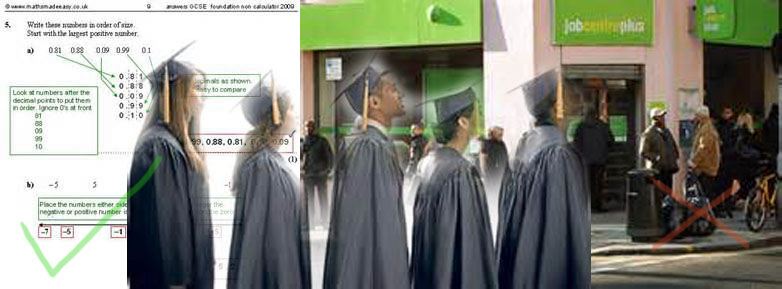20 August 2015
Education for all
By Serena Sinclair

Lord Kenneth Baker who was Education Secretary from 1986 to 1989 told the Sunday Telegraph that the GCSEs are ripe for review. He takes the view that, as all pupils are now obliged by law to stay on in some form of education until 18, GCSEs are effectively a redundant exam and will ‘wither on the vine’ within the next 10 years. This remark has received widespread comment and press coverage with many educationalists, politicians, journalists and the general public weighing in with their views.
Historically, the GCSEs have their roots in the old School Certificate, which was instituted just after the First World War in 1918 to replace the Oxford and Cambridge exams, first set up in the mid-nineteenth century. The School Certificate taken at 16 required pupils to pass a group of subjects. The Higher School Certificate could be taken at 18. At this time, most pupils did not stay at school beyond 14 and most left without any formal qualification at all. After the Second World War, the 1944 Education Act provided for a replacement for the old School Certificates and the O’ levels and A’ levels came into being. These were short for General Certificate of Education ‘Ordinary’ and ‘Advanced’ levels. However, in a divided system where only 20% of State-educated pupils went to Grammar Schools and the rest to Secondary Moderns and with only 16% in 1960 leaving school with five O’ level passes, it was felt desirable to introduce a new qualification which could be taken by ‘the rest’. Hence the introduction in the mid-60s of the CSE or Certificate of Secondary Education, which had six grades, the highest being the equivalent of an O’ level. By 1979, the increasing overlap between GCEs and CSEs and the feeling that a two-tier system was undermining public and employer perceptions of the qualifications, led to Shirley Williams, Education minister in the Callaghan Labour Government in power at the time, proposing a merged system. It fell to the Conservatives to bring this in, however, as the Labour party lost power in the 1979 Election. Sir Keith Joseph, Lord Baker’s predecessor, decided to proceed with the merger in 1984, but it was not until 1986 that the first GCSE courses began.
Since then, there have been a number of changes. Although GVNQs, a vocational qualification, were overhauled in 1994, they were abandoned in 2002 in favour of vocational GCSEs. By 2007 concerns were being raised that children from the poorest backgrounds were increasingly taking vocational/non-academic GCSEs rather than the traditional core academic subjects such as history, geography and modern languages. Weighting these non-vocational subjects as ‘worth’ more than one GCSE was regarded as partly to blame and the Wolf review, reporting in March 2011, recommended removal of 96% of the 3,175 ‘equivalent’ qualifications. Some felt that this had swung the pendulum too far the other way. At the same time, the Coalition government introduced the English Baccalaureate as a ‘performance measure’ showing where pupils have obtained at least a Grade C across a core of academic subjects. The teaching unions were generally not in favour.
According to Martin Stephens, the former High Master of St Paul’s School London, writing in the Telegraph yesterday, ‘The GCSE has been reformed more times than the Church, but still fails on every front’. He argues, convincingly, that the exam is not academic enough for the most able, too difficult for the less able and tedious beyond belief for all the rest. He suggests that there should be three options; a School Leaving Certificate to provide evidence of basic numeracy and literacy; a set of vocational exams for those wanting to choose the apprenticeship route and a set of academic exams for those who want to go on to a traditional university course. Does he really mean traditional? That could set in train another debate entirely, particularly with the news this week that Tony Blair’s objective of 50% of school leavers going on to university having been achieved, 50% of those gaining university degrees are graduating to fill job vacancies which do not require one.

